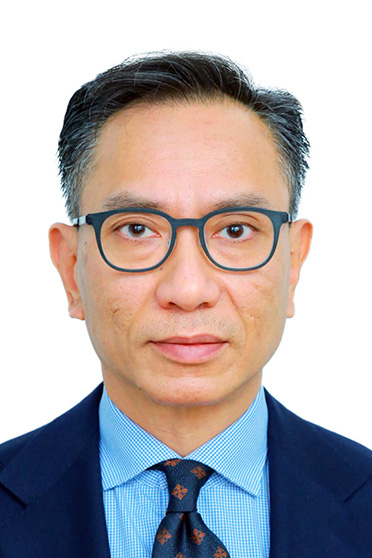Prosecutor General of the Public Prosecutions Office
Chan Tsz King

Chan Tsz King, born in Hong Kong in 1970, completed a course in the Faculty of Arts and Humanities in University of Lisbon of Portugal in 1989 and obtained a Bachelor’s Degree in Law from Autonomous University of Lisbon of Portugal in 1995. He successively completed the first Training Course for Magistrates of Macao Courts and the Public Prosecutions Office in 1997 and the first Advanced Course of the Magistrate Training Centre in 1998.
Chan Tsz King was appointed as prosecutor of the Public Prosecutions Office in July 1997 and promoted to Assistant Prosecutor-General in March 2000. Between January 2012 and December 2019, he was posted to work in the Office at the Courts of Final Appeal and Second Instance of the Public Prosecutions Office. He served as Commissioner Against Corruption between 2019 and 2024.
Chan Tsz King taught in the Faculty of Law of the University of Macau between 1998 and 2004 and participated in four Macao courts and Public Prosecutions Office magistrate training courses consecutively after the handover of Macao to the People’s Republic of China. Furthermore, he was a member of the pedagogical council of the magistrate training course of the Legal and Judicial Training Centre between 2006 and 2008. Starting from 2012, he has been a member of the Prosecutors’ Committee and was appointed as a member of the Law Reform Council in 2015 and has been a member of the Asset Freezing Coordination Commission starting from 2017. In February 2019, he was appointed as a member of the Electoral Affairs Commission for the fifth Chief Executive Election.

